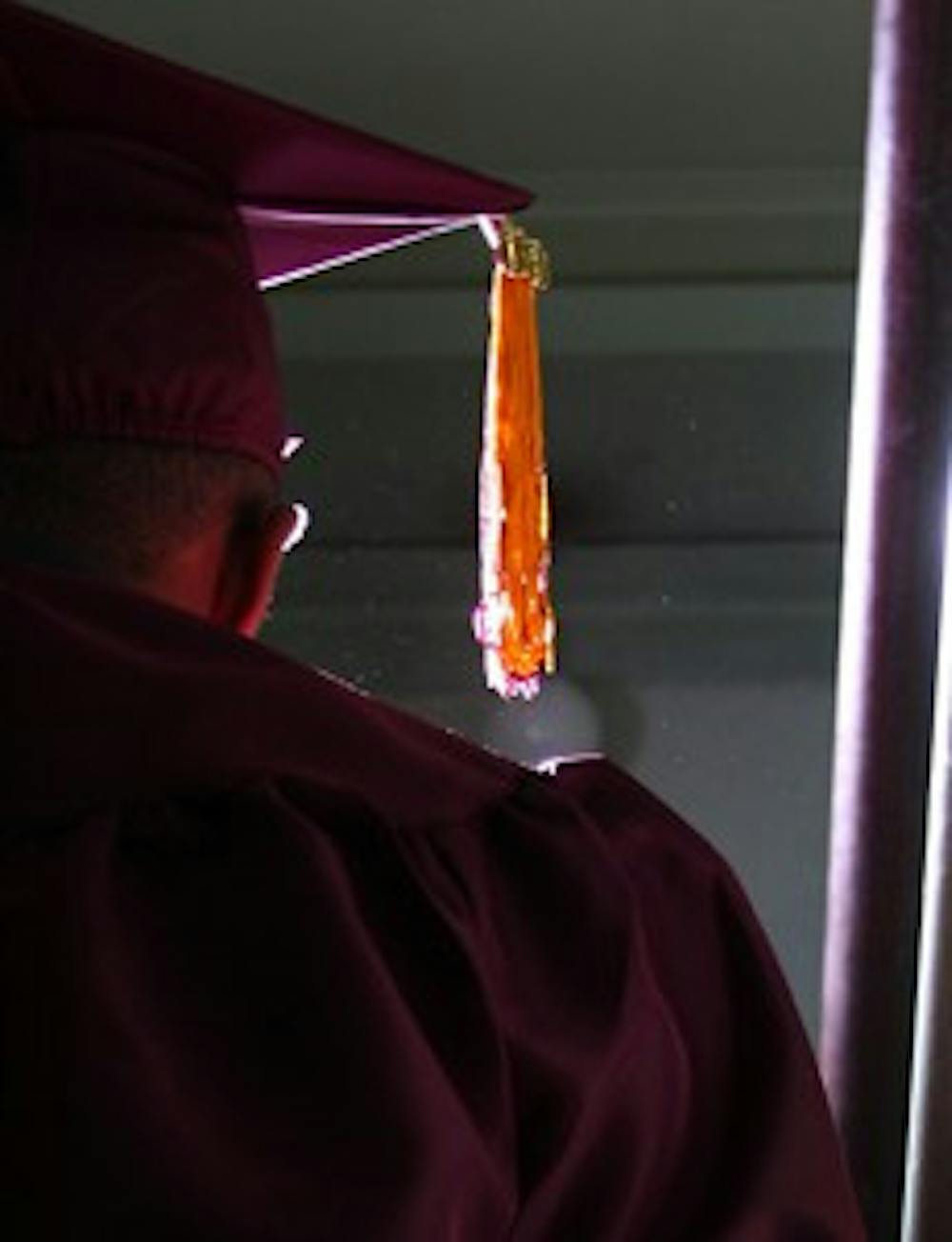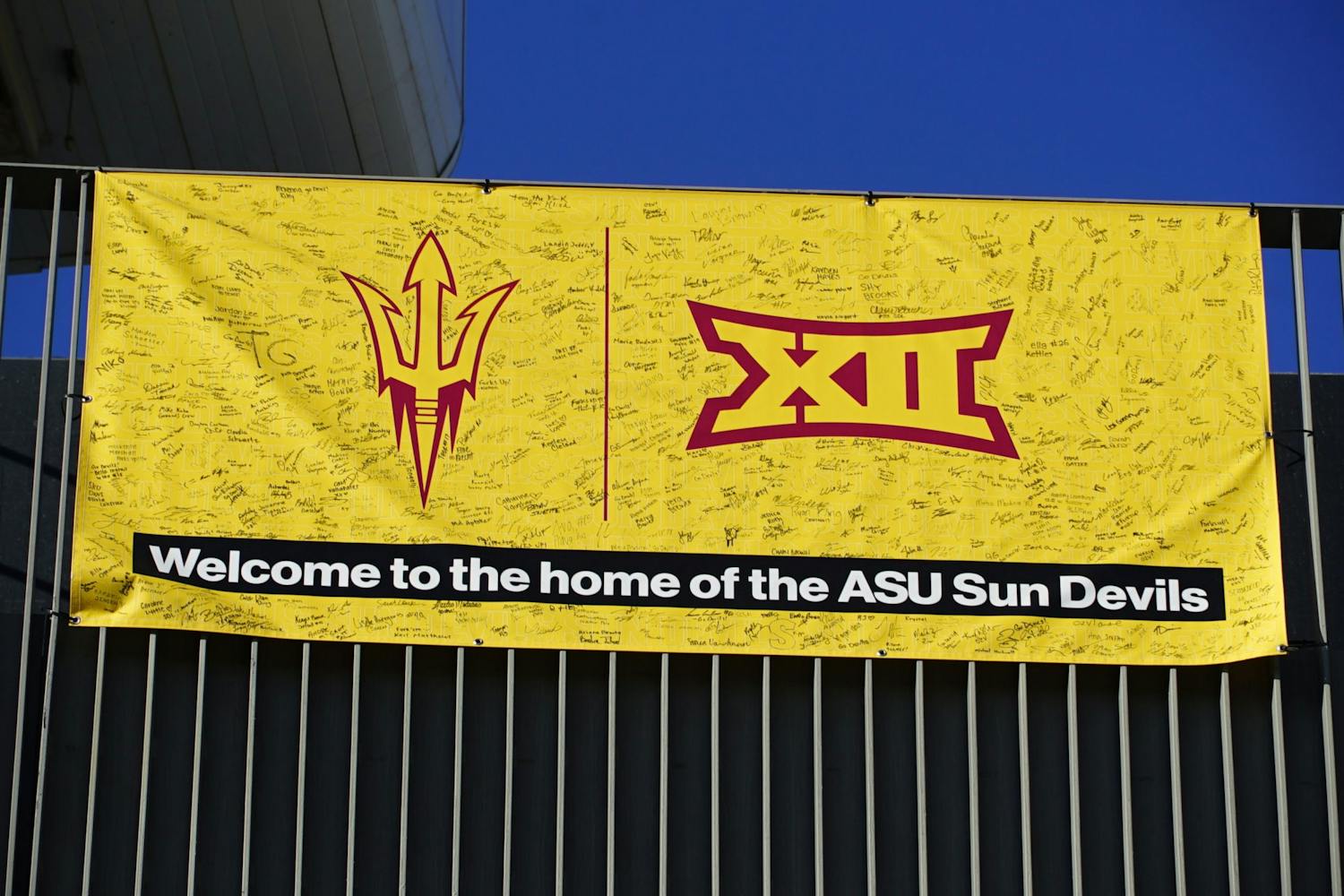When he graduates next month, aerospace engineering senior Blaine Stolpestad hopes to be flying high, even though the economy is in a downward spiral.
Stolpestad is one of thousands of graduating seniors who will face declining job and housing markets and a deficient economy.
The possibility of heading into a recession has many students nervous about what they will do after they toss their caps into the sky this May.
"Airplanes are a luxury item. A lot of companies buy them, but not a lot of individuals do," Stolpestad said about working in the field of aerospace engineering. "As the market slows down, I think demand will slow down, so it will be hard to find a job, but I think I will be able to find something."
Stolpestad said he is excited to graduate from ASU, and he feels his classes have prepared him to work in his field, but he said there is still a lot to learn on the job.
Kaye Lamb, assistant director of ASU Career Services, said graduating students shouldn't panic because a college degree is still marketable.
"Much of the same work expected of you in the classroom is the same in the world of work," Lamb said. "Don't underestimate the skills that you have been developing by completing your college degree. A good student can make those same habits that made them a good student and translate them into being a good worker."
Though many students consider this to be a technological era and are searching for jobs on the Internet, Lamb said that shouldn't be the only place to hunt for jobs.
"I would strongly suggest [students] combine high-tech with high-touch," he said. "Inform everyone you know that you are looking for a job. Network, network, network — don't rely solely on the Internet."
Tracy Clark, associate director of the JPMorgan Chase Economic Outlook Center at the W. P. Carey School of Business, said students should realize the difficulties with the economy and job market are localized in certain areas.
"Just because the economy is bad in general, don't automatically assume everything is going to be horrible for you," Clark said. "I encourage students to be flexible when they are looking for a job. Don't automatically eliminate a job because that wasn't what you trained for."
Besides specific skills, such as those required for doctors or electrical engineers, employers generally look for people who have a broad education, Clark said.
"Flexibility is the key here," Clark said. "Just because you've been fixated on a certain path you've made for the past four years doesn't mean you have to go down it. If that path doesn't work, scrap it and find a new one."
And, though Americans are currently living through tough times, Clark said people shouldn't expect it to be like this for too much longer.
"Don't assume, since things are lousy, they are going to stay that way for 10 or 20 years," Clark said. "The downturn will not be so great for 2008, but it will start stabilizing in 2009. The timing is lousy, but it will get better."
Reach the reporter at: ryan.calhoun@asu.edu.




